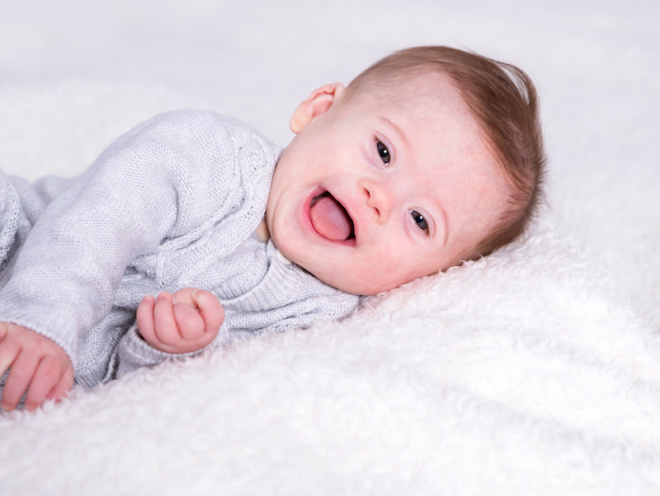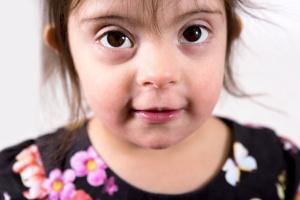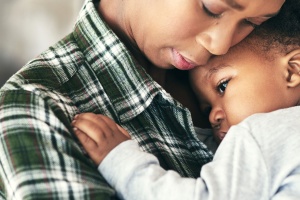What is Down's syndrome and how does it affect children? Find out more in our article.
What is Down’s syndrome?
Down’s syndrome is a genetic difference caused by an extra chromosome in a person’s cells (Diamandopoulos and Green, 2018). In most cases, it isn't inherited. It's simply the result of a one-off genetic change in the sperm or egg (NHS, 2019; Diamandopoulos, and Green, 2018).
Is anyone more likely to have a baby with Down’s syndrome?
No, babies with Down’s syndrome are born in every country to parents of all ages, races, religions and backgrounds (Sherman et al, 2007).
There's a small chance of having a baby with Down's syndrome in any pregnancy, with the likelihood increasing with the age of the mother (Sherman et al, 2007; Coppede, 2016; Diamandopoulos and Green, 2018; NHS, 2019).
A woman who is 20 has about a 1 in 1,400 chance of having a baby with Down's syndrome, while a woman who is 45 has about a 1 in 32 chance (Diamandopoulos and Green, 2018).
How does Down’s syndrome affect children’s health?
Whilst Down's syndrome is the most common neuro-developmental disorder, there can be large differences in how it affects individuals (Karmiloff-Smith et al, 2016). Children with Down’s syndrome will be more prone to some common health conditions like respiratory and gastrointestinal infections (Malt et al, 2013; Diamandopoulos, and Green, 2018). It's important to say that your child might not suffer from any of these medical conditions or might only experience a few.
Like the rest of society, people with Down’s syndrome benefit from medical advancements and are now living longer, healthier lives, but can still face different health challenges (NICHD, 2018). Around 40% of babies with Down's syndrome have a congenital heart problem (Karmiloff-Smith et al, 2016). For some, routine heart surgery means they are home within a week or two, while others have more complications and are in hospital for longer (Evans et al, 2014; Diamandopoulos and Green, 2018).
Through improvement in education, research and therapies, children and adults with Down’s syndrome live full, rewarding and increasingly independent lives (Brown et al, 2001; Mahoney et al, 2006; Karmiloff-Smith et al, 2016).
Can Down's syndrome impact on breastfeeding?
There may be additional challenges to breastfeeding if a baby has Down’s syndrome. Heart problems may mean that the baby tires easily when feeding. Some babies may struggle to attach to the breast due to the positioning of their tongue (Diamandopolous and Green, 2018).
Extra support from a breastfeeding counsellor or health care professional after birth may be helpful. Breastmilk contains antibodies that are important for babies with Down’s syndrome due to their increased risk of gastrointestinal infections (White, 2013).
How can Down’s syndrome affect my child’s mental and physical development?
People with Down’s syndrome have some level of learning disability. Most children with Down’s syndrome take a bit longer to reach developmental milestones, such as walking and talking (Malak et al, 2015; Diamandopoulos and Green, 2018). But with the right support, most will meet the usual childhood milestones and make good progress at a mainstream school (Diamandopoulos and Green, 2018).
You could try a number of things to help your child’s development, see our article on the support and information available to you.
How does Down’s syndrome affect education?
Lots of children with Down’s syndrome enjoy a mainstream education in their local nurseries or schools. Like all children, individual needs differ, and they will require varying levels of support in education (NHS, 2019).
You may feel a special school will be best for your child. It will help to visit some mainstream and special schools in your local area and talk to the staff about how they would meet your child's educational needs. You can also apply for an education health and care plan (EHC Plan) (NHS, 2019).
What support is there for parents and families?
It's natural for parents to sometimes worry about their pregnancy and baby. Having a baby with Down’s syndrome might initially bring some extra concerns but there is lots of support from midwives, paediatricians and therapists. You will also be entitled to financial assistance.
Local and online support groups are here to help you too. They can help you to share the highs and lows of raising children with Down’s syndrome. Read more in our article about the support and information available to you.
Remember, you're not alone.
This page was last reviewed in November 2021.
Further information
Our support line offers practical and emotional support with feeding your baby and general enquiries for parents, members and volunteers: 0300 330 0700.
We also offer antenatal courses which are a great way to find out more about birth, labour and life with a new baby, and NCT New Baby courses when your baby has arrived.
Make friends with other parents-to-be and new parents in your local area for support and friendship by seeing what NCT activities are happening nearby.
Down’s Syndrome Association is a charity that provides information, support and advice to people with Down’s syndrome and their families. They also have information on affiliated local support groups.
Mencap is a charity supporting people with learning disabilities.
Positive About Down Syndrome shares real-life stories of other parents and what having a child with Down’s syndrome means to them as a family. They can put you in touch with local support groups and families with a child or young person with Down’s syndrome.
There are many online support groups that can also offer support. If you are pregnant and had a high chance/positive result there is a closed Facebook page exclusively for those in your situation.
If you have recently had a baby with Down’s syndrome, a warm welcome awaits you on Positive about Down syndrome's page.
Coppede F. (2016) Risk factors for Down syndrome. Archives Toxicology. 90(12): 2917-2929. Available at: https://www.ncbi.nlm.nih.gov/pubmed/27600794 [Accessed 18 November 2021]
Diamandopoulos, K. and Green, J. (2018) Down syndrome: An integrative review Journal of Neonatal Nursing 24(5) Available at: https://doi.org/10.1016/j.jnn.2018.01.001
Evans JM, Dharmar M, Meierhenry E, Marcin JP, Raff GW. (2014) Association between Down syndrome and in-hospital death among children undergoing surgery for congenital heart disease: a US population-based study. Circulation: Cardiovascular Quality and Outcomes. 7(3): 445-452. Available at: https://www.ncbi.nlm.nih.gov/pubmed/24755908 [Accessed 18 November 2021]
Karmiloff-Smith A, Al-Janabi T, D'Souza H, Groet J, Massand E, Mok K, Startin C, Fisher E, Hardy J, Nizetic D, Tybulewicz V, Strydom A. (2016). The importance of understanding individual differences in Down syndrome. Available at: https://www.ncbi.nlm.nih.gov/pmc/articles/PMC4806704/ [Accessed 18 November 2021].
Mahoney G, Perales F, Wiggers B, Herman B. (2006) Responsive Teaching: early intervention for children with Down syndrome and other disabilities. Down syndrome Research and Practice. 11(1):18-28. Available at: https://www.ncbi.nlm.nih.gov/pubmed/17048806 [Accessed 18 November 2021]
Malak R, Kostiukow A, Krawczyk-Wasielewska A, Mojs E, Samborski W. (2015) Delays in motor development in children with Down syndrome. Med Sci Monit. 21: 1904-1910. https://www.ncbi.nlm.nih.gov/pmc/articles/PMC4500597/
Malt EA, Dahl RC, Haugsand TM, Ulvestad IH, Emilsen NM, Hansen B, Davidsen EM. (2013) Health and disease in adults with Down syndrome. Tidsskr Nor Laegeforen. 133(3):290-294. Available at: https://www.ncbi.nlm.nih.gov/pubmed/23381164 [Accessed 18 November 2021]
NICHD (2018) About Down’s syndrome. Available at: https://www.nih.gov/include-project/about-down-syndrome [Accessed 18 November 2021]
Sherman SL, Allen EG, Bean LH, Freeman SB. (2007) Epidemiology of Down syndrome. Mental Retardation and Developmental Disabilities Research Reviews. 13: 221-227. Available at: https://www.ncbi.nlm.nih.gov/pubmed/17910090 [Accessed 18 November 2021]
White M. (2013) Providing Breastfeeding Support in the Hospital Setting for Mothers Who Have Infants With Down Syndrome. Available at https://journals.sagepub.com/doi/full/10.1177/1941406413496568 [Accessed 18 November 2021]








